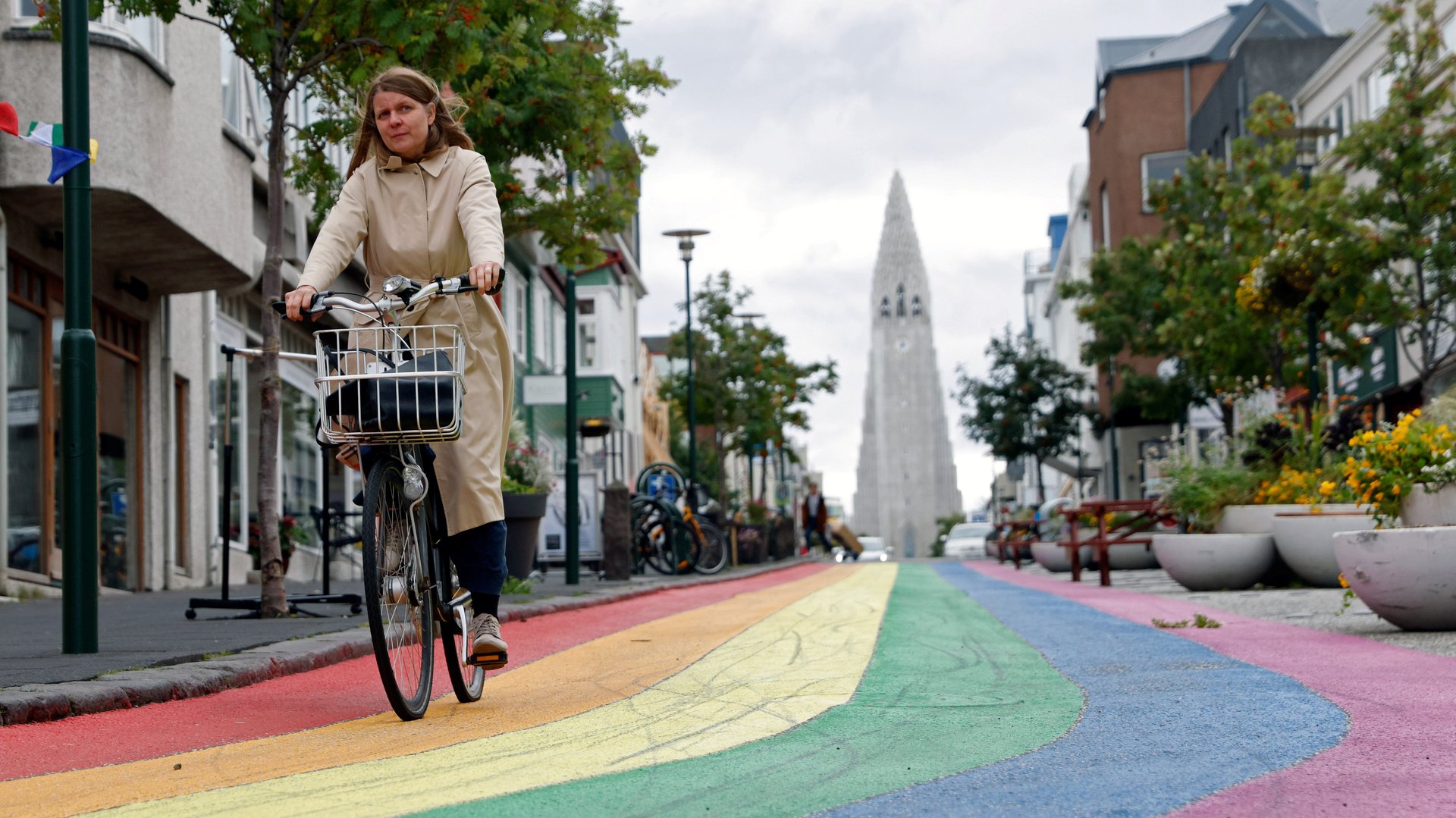Iceland’s four-day work week trial was a triumph for all
Iceland's four-year experiment with a shorter workweek was declared a huge success in a new report


“More time for oneself”
“More time for exercise”
“Easier to do errands”
The tantalizing chapter headings in a new report about a multiyear trial of a four-day work week in Iceland are as encouraging as the results of the experiment itself.
The trial, which started in 2015 and involved more than 2,500 workers, showed that reducing work hours was overwhelmingly positive for people in a range of workplaces, while productivity remained about the same or improved in some cases.
Parents said that their mornings, in particular, were less hectic. Many men in heterosexual relationships claimed they used their newfound time to do more housework. Employers, meanwhile, found that people were taking fewer sick days and seemed more energized on the job, according to Will Stronge, co-director of Autonomy, a UK think tank that analyzed the trial data with the Icelandic nonprofit Alda, Association for Sustainable Democracy.
“That is what comes out in a lot of these trials,” he told CBC news, “that people feel actually more attached to the job in a way that they feel rewarded by having more time.”
How Iceland’s four-day workweek trial worked
Iceland’s major trial was launched in 2015 by the country’s federal government and the Reykjavik City Council, in concert with various trade unions. In all, 2,500 employees were able to reduce their work schedules to 35 or 36 hours per week rather than 40. Crucially, salaries remained the same.
Several people interviewed by the researchers said they found slack time to cut out of their schedules by truncating workplace meetings or eliminating a few entirely. If a meeting could be an email, it indeed became one. Coffee breaks were also sacrificed or at least made less leisurely.
Not all of the workers chose to have three days off every week. Instead, some spread out their extra time off across the week, using it for life’s daily demands, like picking up children from school, the report says. Although the trial initially began with employees in shift work, it eventually included people at nursery schools, in social service jobs, and office workers in 9-to-5 jobs.
The experience has been so positive that many employers didn’t wait for the official report to act: Today, 86% of Iceland’s working population, or 174,000 people, have already shifted to a shorter work week or have gained the right to trim their working hours.
🎧 For more on the benefits of a shorter week, listen to the Work Reconsidered podcast episode on the four-day workweek. Or subscribe via: Apple Podcasts | Spotify | Google | Stitcher.
Among OECD countries, Iceland has longer working hours than other wealthy nations, but lower productivity, the report notes. The architects of the four-day trial believe that short work weeks could help shift that equation by recognizing the value of allowing people more time for fuller lives.
A shorter work week led to more time for family and the outdoors
The new report’s snippets of interviews with satisfied participants paint a picture of a more comfortable life, one with additional time for hobbies, exercise, or hanging out with family members.
“My older children know that we have shorter hours and they often say something like ‘Is it Tuesday today, dad? Do you finish early today? Can I come home directly after school?,’” says one happy father, “and I might reply ‘Of course’. We then go and do something — we have nice quality time.
Many men took on more household chores, particularly cooking and cleaning, duties that still typically fall to women in their so-called second shift. “I’m more likely to take the initiative and do whatever is needed, hoovering or whatever,” one man said. “I’m more likely to simply do these things.” (Not all women agreed with such accounts, the report also notes.)
The downsides of a four-day workweek
But the study highlights a few challenges with implementing a four-day work week, too, making it instructive for companies, and countries like Spain, which are now planning their own experiments.
For example, some managers worried that employees who already had a heavy workload would be under additional stress when asked to perform at a faster pace. Employees who had to hand off instructions to other workers also said that it was more difficult to connect and communicate effectively after their hours were reduced. Anecdotally, some managers found it impossible to spend less time at work, and said that organizing training sessions or events like goodbye parties for employees became more complex.
But other team leaders reported that the added stress they felt at the beginning of the trial dissipated as the months passed. Some experienced more strain throughout the trial, but offered that even this was “outweighed by other improvements.”
The pandemic has prompted more four-day workweek trials
Throughout the pandemic, surveys found more employees reporting the symptoms of burnout, which is one of the reasons more companies are expected to embrace the four-day work week in the coming years. Though it’s still a nascent trend to be sure, last month Kickstarter, announced it would test the reduced schedule beginning in 2022.
A greater sense of dignity could be one of the silver linings, if Iceland’s recent experience is any guide.
“This [reduction in hours] shows increased respect for the individual,” as one participant in the Icelandic trial told the authors of the report. “That we are not just machines that just work … all day. Then sleep and get back to work.”